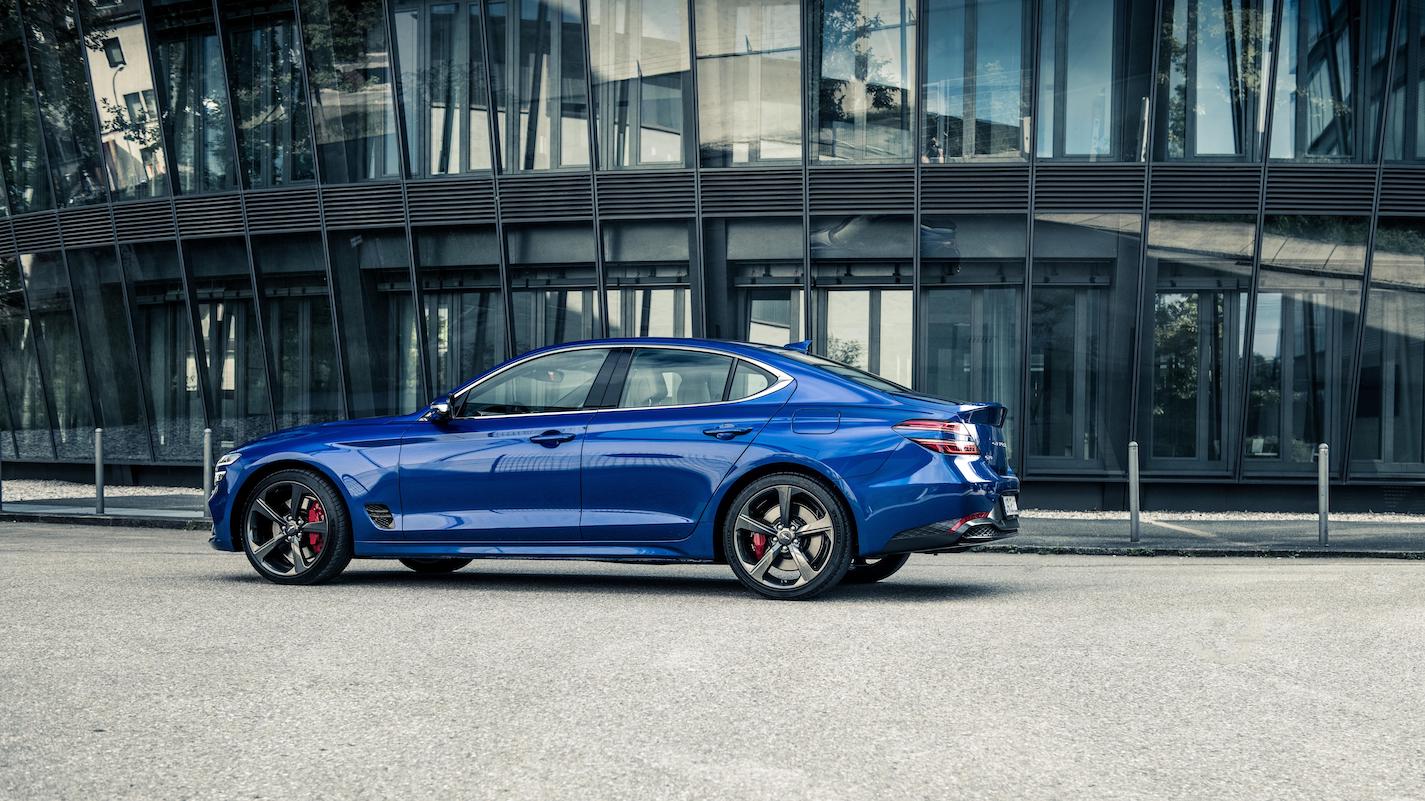
In a European car market increasingly replete with electrification, one diesel-powered D segment sedan provides novelty. That car, the Genesis G70, is a refreshing and yes, luxurious experience, albeit with a few quirks.
Snow is lightly falling as I write this. Which makes me think of all those new-to-EVs owners who are suddenly seeing what heating set to maximum (including seats and steering wheel) can do to range.

Discover B2B Marketing That Performs
Combine business intelligence and editorial excellence to reach engaged professionals across 36 leading media platforms.
On the other hand, had I spent a week with a diesel G70 back in August, the encounter would have been just as impressive as now. The good stuff includes great economy (average 44 mpg) and not even thinking about what the A/C is costing. So fuel station visits are fairly infrequent whatever the temperature.
Not wanting to knock the likes of the GV60 and Electrified G80 but in each of those (and most other EVs) exceptionally cold or hot days means frequent plug-ins. Still, the brand’s electric models can take higher charging speeds than some competitors. Which means they provide a tempting alternative to liquid-fuel Genesis cars and SUVs.
Interestingly, there aren’t many luxury make electric sedans around the size of the G70 (4,685 mm). And there certainly isn’t an e-estate to compete with Genesis’ identically-dimensioned Shooting Brake. So if we accept that Tesla is a premium brand, no wonder that the Model 3 has done so well in markets the world over.
The American company has one of the oldest vehicle line-ups, the S having been in production for a decade. Also, the last time Tesla launched a new car was some three years ago. It’s therefore no wonder that ever more brands are winning big in the segments once dominated by Elon Musk’s company.
Genesis’ EV strategy
This only makes it all the more puzzling that Hyundai Motor hasn’t created a Genesis EV in the D segment. You could say the same of Mercedes-Benz and Audi though. BMW too is technically absent from this big volume class, the i4 being almost 100 mm longer than the Model 3.
It’s all to do with life cycles and launch cadences, plus the weighting given to the Korean and US markets, where EVs are still far from mainstream. As we know, that’s changing, but in so many countries, lots of people are holding out for a bit longer before committing to any EV. Just look at Switzerland right now, with potential restrictions on how often PHEV and electric cars can be charged.
You might think that Hyundai Motor would have launched an Electrified G70 sedan and/or Shooting Brake but the strategy for this model was petrol and diesel only. That’s one of the reasons why sales volume has been fairly low in the three European markets where the brand exists. There are also apparently no plans to add an EV.
No mistaking a Genesis for anything else
As with the estate, the saloon is probably the most distinctive car in its class. Hyundai was clever enough to realise that it had to give Genesis a strong visual identity. This seems to have worked as the G70 gets a lot of attention and questions about what it is.
Every time I have a press tester from this brand, there’s always somebody who wants to have a peer inside.
The car’s seemingly endless beeps and bongs aren’t very premium but the multitude of lovely looking and feeling physical controls certainly are. The 2.2-litre engine is impressively quiet too, and HMG’s own eight-speed automatic transmission is smoothness itself.
Despite drive to one axle only (the rear: the platform is DH Evo), traction is faultless and steering feel is very good and approaching 3 Series levels of sportiness. A touch less body roll would be welcome though.
Life cycle/replacement
The Audi A4-sized sedan has been around in Korea since the second half of 2017, then facelifted three years later. The Shooting Brake arrived in 2021 – initially only for the UK, Germany and Switzerland but it was added to the line-up in South Korea in July.
Will we see another round of styling changes for the G70? It’s certainly possible and if it happens, 2023 or 2024 would be likely. On the other hand, an electric-only successor could instead appear, Genesis having stated in September 2021 that it would be launching only fuel cell and battery EVs from 2025.
Sales – on the up and up
While the G80 is a big reason for Genesis doing so well at home (number three in RK behind Kia and Hyundai, with 119,840 sales year-to-date), the G70 does fairly well there too.
Here, sales volume is small yet November was a great month, the UK importer selling 199 Genesis vehicles. That’s a 765 per cent gain over the same month in 2021, with 837 the tally for the first eleven months. So the four-digit barrier might even be cracked in 2022.
The Genesis G70 diesel’s 2.2-litre engine produces 149 kW (202 PS) and 441 Nm (376 lb ft) with average CO2 of 194 g/km. Pricing for the G70 range starts at GBP33,450.






